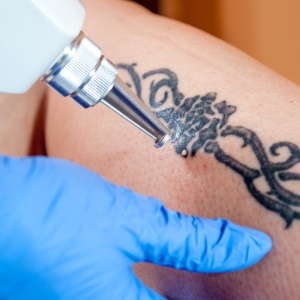
Perhaps your neon forearm tattoo with the name of your high school girlfriend wasn't your brightest move ever.
If so, you're not alone.
Forever is apparently in the eye of the beholder. One in eight tattooed Americans regrets getting what is supposed to be a permanent form of creative expression, according to a 2012 Harris Interactive survey. There are no statistics to indicate how many South Africans have tattoos.
Severe complications
According to a previous Health24 article there are other reasons for regretting getting that tattoo. One example is getting infected by contaminated tattoo inks and/or having bad reactions to the inks.
Only trained people should do tattoos. The skin could be damaged, scarred or the wounds can become infected if someone who is not trained in that field, does the tattoo. Severe complications can arise if the instruments that are used are not disposable or are poorly sterilised, or the venue is unhygienic.
The American Society for Dermatologic Surgery reports that more and more people are doing something about removing that unwanted tattoo.
In 2011, its doctors performed nearly 100 000 tattoo removals, up from 86 000 in 2010. And the number continues to rise.
But before you embark on a tattoo cleanse, learn about your options. The US Food and Drug Administration (FDA), which regulates tattooing and tattoo removal, has some practical advice.
High-intensity laser energy
One way to go is professionally supervised laser removal, according to Mehmet Kosoglu, an FDA engineer.
The process exposes a tattoo to pulses of high-intensity laser energy. After exposure, tattoo pigment breaks up into small pieces, which can then be naturally metabolized by the body or excreted.
Some colours respond better to laser removal better than others, Kosoglu warns. Green, red and yellow are more stubborn than black and blue. And it will likely take six to 10 procedures to get the ink-free outcome you want.
Dermabrasion is another option, in which the top layer of skin is literally sanded away.
Or you can even have the tattooed skin cut away and surrounding skin stitched together.
Unexpected reactions
Be aware that there are no FDA-approved creams for tattoo removal, FDA dermatologist Dr Markham Luke said.
"FDA has not reviewed them, and is not aware of any clinical evidence that they work," Luke noted in an agency news release. In fact, he said, ointments and creams marketed for tattoo removal may cause unexpected reactions, including rashes, burning, scarring or changes in skin pigmentation.
"If you have any concerns about having a tattoo removed, it's a good idea to consult your dermatologist, who is knowledgeable about laser treatments," Luke added.
Read more:




 Publications
Publications
 Partners
Partners















